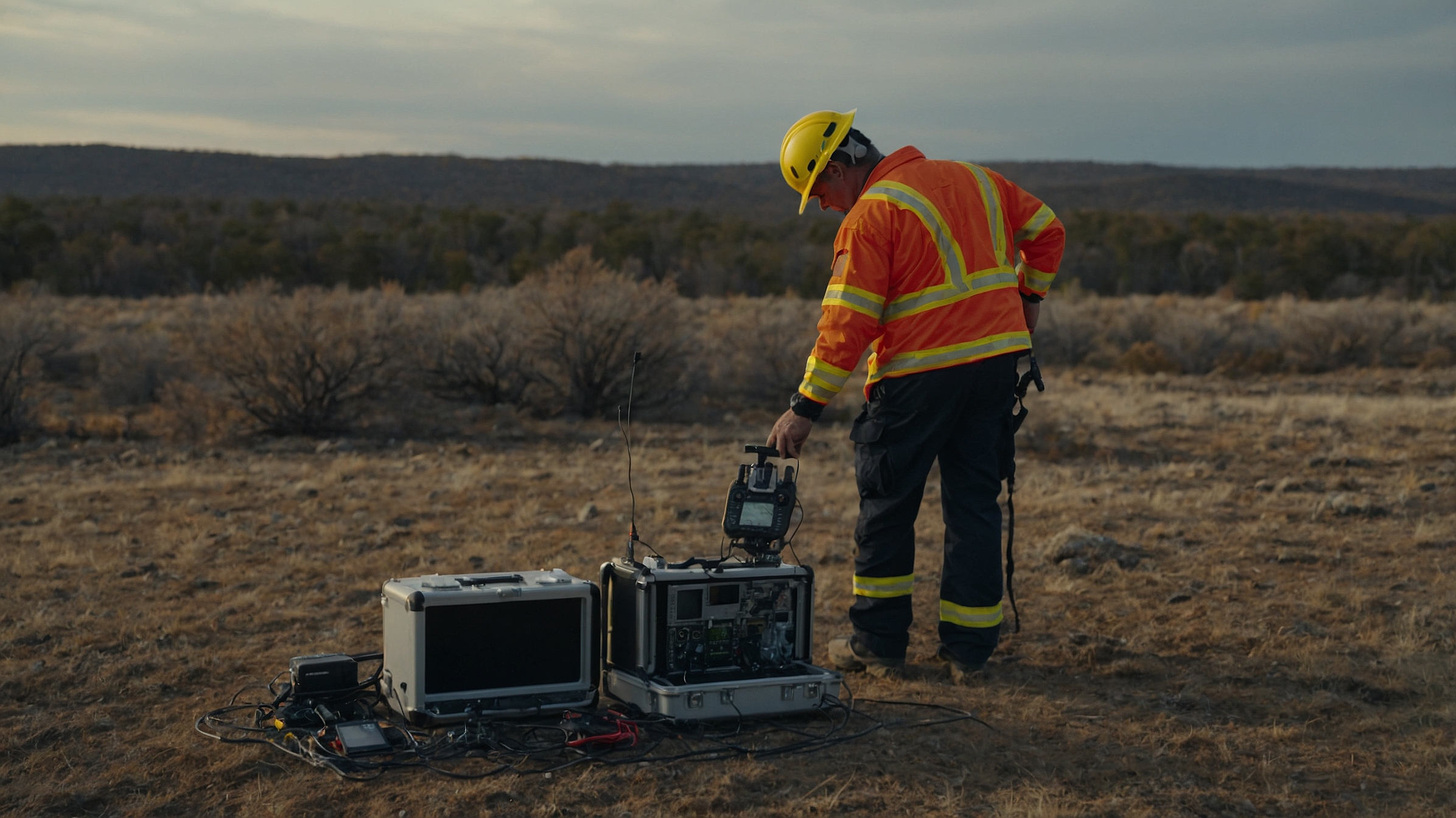| Deadline | 04-11-2024 voor 23:59 |
|---|---|
| Opdrachtgever | Veiligheidsregio Noord- en Oost Gelderland |
| Prijs | Deelname programma Startup in Residence; € 10.000,- vergoeding voor de pilotfase; Kans op een vervolgopdracht; Toegang tot het netwerk van mogelijk toekomstige opdrachtgevers. |
See English text below
Briefing
In crisissituaties is snelle en betrouwbare communicatie essentieel om coördinatie, hulpverlening en informatieverstrekking te waarborgen. De huidige systemen zijn afhankelijk van netwerken en energiebronnen die niet altijd gegarandeerd beschikbaar zijn tijdens een crisis. Denk aan uitval van elektriciteit, storingen in telecommunicatie-infrastructuren, data uitval, internet, satelliet, c2000 of uitgeputte noodaccu’s. Het falen van deze systemen kan leiden tot chaos, vertragingen in hulpverlening en mogelijk verlies van levens. Daarom is er een dringende behoefte aan robuuste, alternatieve communicatiemiddelen die functioneren onafhankelijk van traditionele netwerken en stroomvoorziening. Er is op dit moment geen alternatief betrouwbaar systeem dat in extreme crisis de communicatie overeind houdt voor de veiligheidsdiensten.
Hoe kan VNOG, bij het volledig uitvallen van de huidige communicatiesystemen, effectief blijven communiceren met haar crisis- en ketenpartners?
Welk slim communicatiesysteem kunnen we vanuit VNOG inzetten als bestaande communicatiemiddelen bij grote incidenten langdurig uitvallen? In geval van het ontbreken van communicatiesystemen is het van belang dat we met hoogste prioriteit kunnen blijven communiceren met onze crisispartners en ketenpartners. Uiteraard moeten we ook met burgers kunnen blijven communiceren maar in deze challenge ligt de prioriteit bij de crisispartners en ketenpartners, zij hebben namelijk ook weer een belangrijke rol in het informeren van de burgers waarmee zij dichter in contact staan.
Er bestaat een ‘rode telefoon’. Dit is een soort noodlijn waarmee verbinding tussen gemeentehuis en ziekenhuis kan worden gelegd als gangbare communicatie wegvalt. In deze challenge gaan we uit van een extreme crisissituatie waarbij deze systemen ook uitgeschakeld zijn.
VNOG traint op deze extreme situaties als langdurige stroomuitval en oorlogsdreiging. In het geval van oorlogsdreiging gaan we voornamelijk uit van een pre-conflictueuze fase waarin systemen en digitale infrastructuren worden aangevallen, maar ook militaire dreiging behoort tot de scenario’s waar op getraind wordt. De samenleving moet daarin meer weerbaar gemaakt worden om te kunnen handelen in geval van crisis.
Crisisplannen zijn publiek beschikbaar op de website van VNOG.nl zodat jij als startup meer kan lezen over de context van de crisis situaties. VNOG heeft een fysiek netwerk van brandweerkazernes/posten in de hele regio. Deze infrastructuur kan/mag gebruikt worden in de oplossing die door de startup wordt ontwikkeld.
Waar zijn we naar op zoek?
VNOG is op zoek naar innovatieve, schaalbare oplossingen van startups die kunnen helpen bij het opzetten van een pilotproject. Uitgangspunten zijn dat de oplossing snel in te zetten is en gemakkelijk in gebruik. De oplossing zelf moet zo min mogelijk gevoelig zijn voor uitval (voorkomen dat het probleem verlegd wordt). De oplossing is robuust en hufterproof.
Schaalbaarheid is de cruciale succesfactor in de selectiefase en realisatie. De oplossing moet landelijk in te zetten zijn en eventueel ook in samenwerking met België, Duitsland en Zweden uit te rollen zijn qua samenwerking. Denk qua oplossing dus op lokaal, regionaal, landelijk en Europees niveau. Kijk ook wat er internationaal al is ontwikkeld.
De oplossing is een oplossing ten behoeve van de samenleving! Bij de geboden oplossing is ook nagedacht over de interface / randvoorwaarden. Samenwerking of aansluiting met of op bestaande systemen zou de acceptatie van de oplossing ten goede komen.
Waar zijn we NIET naar op zoek?
VNOG is niet op zoek naar communicatie strategieën, onderzoeken of diensten van adviesbureaus. We zijn niet op zoek naar boekwerken met informatie en leidraad, dit past niet bij de werkwijze van de VNOG. De oplossing moet adequaat in te zetten zijn.
Updates
Additional information 21th october 2024:
Previously, VNOG conducted an inventory of alternative communication methods for emergency situations. There is a system that can be further developed as open source. Startups could incorporate this into their solution approach. This technology could be part of the solution. As a suggestion, we would like to offer this to interested startups. More information about this technology can be found at https://www.meshnet.nl/ and can be used by anyone, with the following characteristics:
- easy to use,
- inexpensive,
- no permits required,
- open source,
- currently only supports (small) text messages in this development phase,
- low power consumption.
This system, due to its open source nature, can be further developed and/or offered as a complete communication solution.
English version
In crisis situations, fast and reliable communication is essential to ensure coordination, assistance, and information dissemination. Current systems rely on networks and energy sources that may not always be available during a crisis. Consider power outages, failures in telecommunications infrastructure, data outages, internet disruptions, satellite issues, C2000 failures, or depleted emergency batteries. The failure of these systems can lead to chaos, delays in emergency response, and potentially loss of life. Therefore, there is an urgent need for robust, alternative communication tools that operate independently of traditional networks and power supplies. At present, there is no alternative reliable system that can maintain communication for safety services during extreme crises.
How can VNOG continue to communicate effectively with its crisis- and chain partners if the current communication systems fail completely?
What smart communication system can VNOG deploy if existing communication tools fail for an extended period during major incidents? In the absence of communication systems, it is vital to prioritize communication with our crisis and chain partners. While it is also important to communicate with the public, this challenge focuses on crisis and chain partners, as they play a critical role in informing the public, with whom they are more closely connected.
There is an emergency line known as the ‘red telephone.’ This is a type of emergency line that establishes a connection between the town hall and hospital when conventional communication fails. However, in this challenge, we are considering an extreme crisis situation where even these systems are disabled.
VNOG trains for these extreme scenarios, such as prolonged power outages and threats of war. In the event of a war threat, we mainly focus on a pre-conflict phase where systems and digital infrastructures are attacked, but military threats are also part of the scenarios being trained for. Society must be made more resilient to act in case of a crisis.
Crisis plans are publicly available on the VNOG.nl website so that you, as a startup, can read more about the context of these crisis situations. VNOG has a physical network of fire stations throughout the region. This infrastructure can be used in the solution developed by the startup.
What are we looking for?
VNOG is looking for innovative, scalable solutions from startups that can help set up a pilot project. The main criteria are that the solution is quick to deploy and easy to use. The solution itself must be as minimally susceptible to failure as possible (preventing the problem from shifting). The solution should be robust and foolproof.
Scalability is the critical success factor in the selection and realization phases. The solution must be deployable on a national scale and, if necessary, rolled out in collaboration with Belgium, Germany, and Sweden in terms of cooperation. Think of a solution that operates at the local, regional, national, and European levels. Also, consider what has already been developed internationally.
The solution is for the benefit of society! The proposed solution should also consider the interface/requirements. Collaboration or compatibility with existing systems would enhance the solution’s acceptance.
What are we NOT looking for?
VNOG is not looking for communication strategies, research, or services from consulting firms. We are not looking for extensive documents with information and guidelines, as this does not fit VNOG’s working style. The solution must be deployable in an effective manner.










